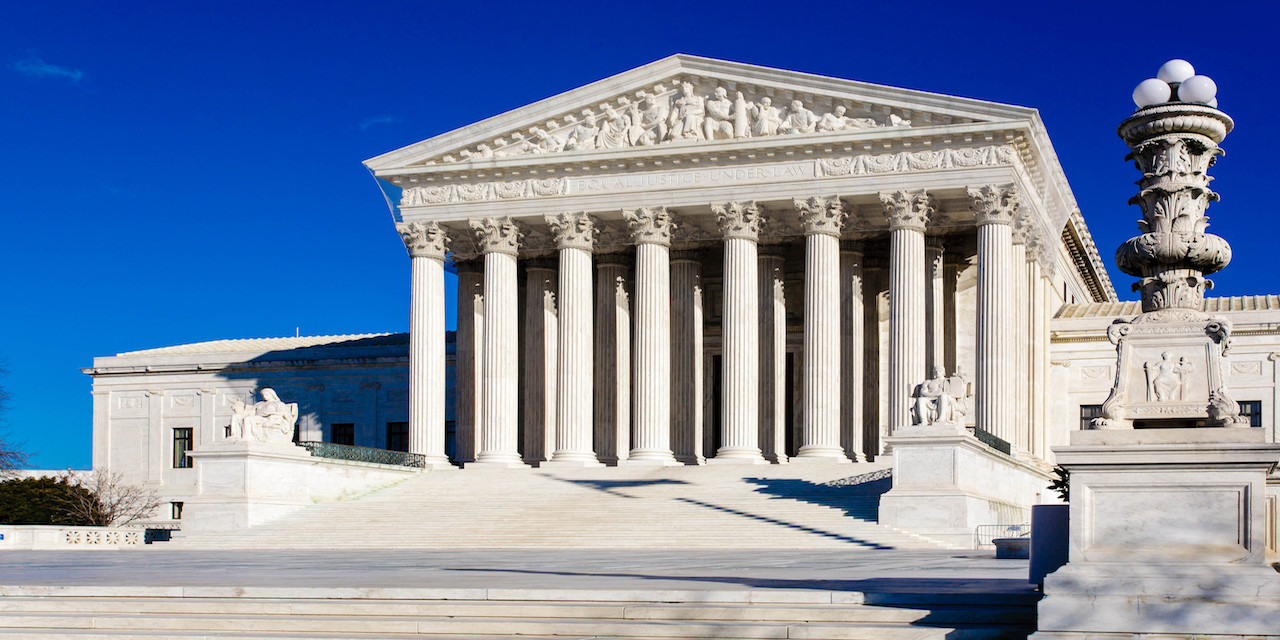Arguments have begun to be filed in the latest try to persuade the U.S. Supreme Court to order an Illinois labor union to refund potentially tens of millions in fees the court has already declared were unconstitutionally collected.
A little over a month ago, lawyers representing a group of about 80,000 Illinois homecare providers filed a petition with the nation’s high court, asking justices to take up their case against the Service Employees International Union, with potentially big money at stake.
“The Court should make it clear that unions are not free to keep monies they unconstitutionally seize from individuals without consent, but must return to its rightful owner all monies they wrongfully extract,” the plaintiffs wrote in their Feb. 25 petition.
In this case, they said the personal assistants are owed everything the union collected from them without their consent, plus interest.
“That necessarily follows from the fact it was unconstitutional for Illinois and SEIU to seize any agency fees from these nonconsenting personal assistants,” the plaintiffs wrote.
“A return of all such fees is required to make these individuals whole.”
The issues at the base of the case date back years, when caregivers first filed suit in federal court to demand judges undo a long-standing partnership between unions and the state of Illinois, by which unions were able to use state law to essentially force non-state employees to pay fees worth millions.
From 2008-2014, the state, under former Gov. Pat Quinn, a Democrat backed by the SEIU and other unions, used a law to declare all in-home personal care assistant paid through state subsidies to be state employees, subject to representation by the SEIU.
Caregivers could still decide whether to formally join the union and pay dues. Regardless of their decision, however, the state still deducted so-called “fair share fees” or agency fees from the checks written to non-union caregivers, ostensibly to offset the union’s bargaining costs.
However, in 2014, the Supreme Court struck down that regime, declaring the compulsory fees to be unconstitutional in the case known as Harris v Quinn.
The Harris decision then sparked a class action from the caregivers, seeking to recover an estimated $32 million from the SEIU.
U.S. district court judges and the U.S. Seventh Circuit Court of Appeals in Chicago have steadfastly rejected their attempts to win the refunds of the illegal fees.
Essentially, the judges said they believe it would be too difficult for the courts to be able to say all 80,000 affected caregivers actually didn’t want the union to take their money.
In the meantime, in 2018, the Supreme Court decided in the case known as Janus v AFSCME that states also trample the rights of actual non-union employees by forcing them to also pay agency fees. Supreme Court Justice Samuel Alito noted such fee payments had resulted in “billions of dollars … taken from nonmembers and transferred to public sector unions in violation of the First Amendment.”
Shortly after the Janus decision, the Supreme Court directed the Seventh Circuit to take another look at the Illinois caregivers’ class action in light of the Janus decision.
The Seventh Circuit in January 2019 again, however, denied the class action attempt, saying the Janus decision had changed nothing.
The rejection by the Seventh Circuit then prompted the caregivers, led by named plaintiff Theresa Riffey, to appeal again to the U.S. Supreme Court.
“The (Supreme) Court twice has held it violates the First Amendment for Illinois and a union to seize agency fees from unconsenting individuals,” the plaintiffs wrote in their petition. “That individuals subjected to these unauthorized fee seizures suffer First Amendment injury and damages as a result inexorably flows from those holdings.
“The Seventh Circuit continues to resist that conclusion based on the discredited proposition that individuals must object to subsidizing union speech to establish First Amendment injury and damages.”
The plaintiffs have been joined by a friend-of-the-court brief from the Pacific Legal Foundation, of Sacramento.
The PLF noted the First Amendment protects workers’ rights to refuse consent to the collection of such fees “for any reason or no reason at all.”
They pointed to cases in Texas and New Mexico in which classes of non-union members seeking fee refunds have been approved, with judges noting union fans who never objected to the collection of their fees could simply opt out of the class, if they so wished.
In New Mexico, they said, “the court certified the class, rejecting the union’s contention that the named plaintiffs – explicit objectors – did not adequately represent the silent class.
“… The court emphasized that both the named plaintiffs, and the absent class members ‘chose, for whatever reason, not to join the union,’ and could have done so at any time…
“Rejecting the union’s ‘backward logic’ and ‘unclean hands’ in failing to provide constitutionally-required notice, the court held that calculation of damages would be elementary and of such an amount on an individual basis to make the class action the superior method of litigation.”
To date, neither the state of Illinois nor SEIU have filed replies to either the plaintiffs’ brief or the PLF’s amicus brief.
On April 2, the case materials were distributed to the justices for a conference scheduled for April 18.
The plaintiffs are represented in the case by attorneys William Messenger and Amanda K. Freeman of the National Right to Work Legal Defense Foundation, of Springfield, Va.
